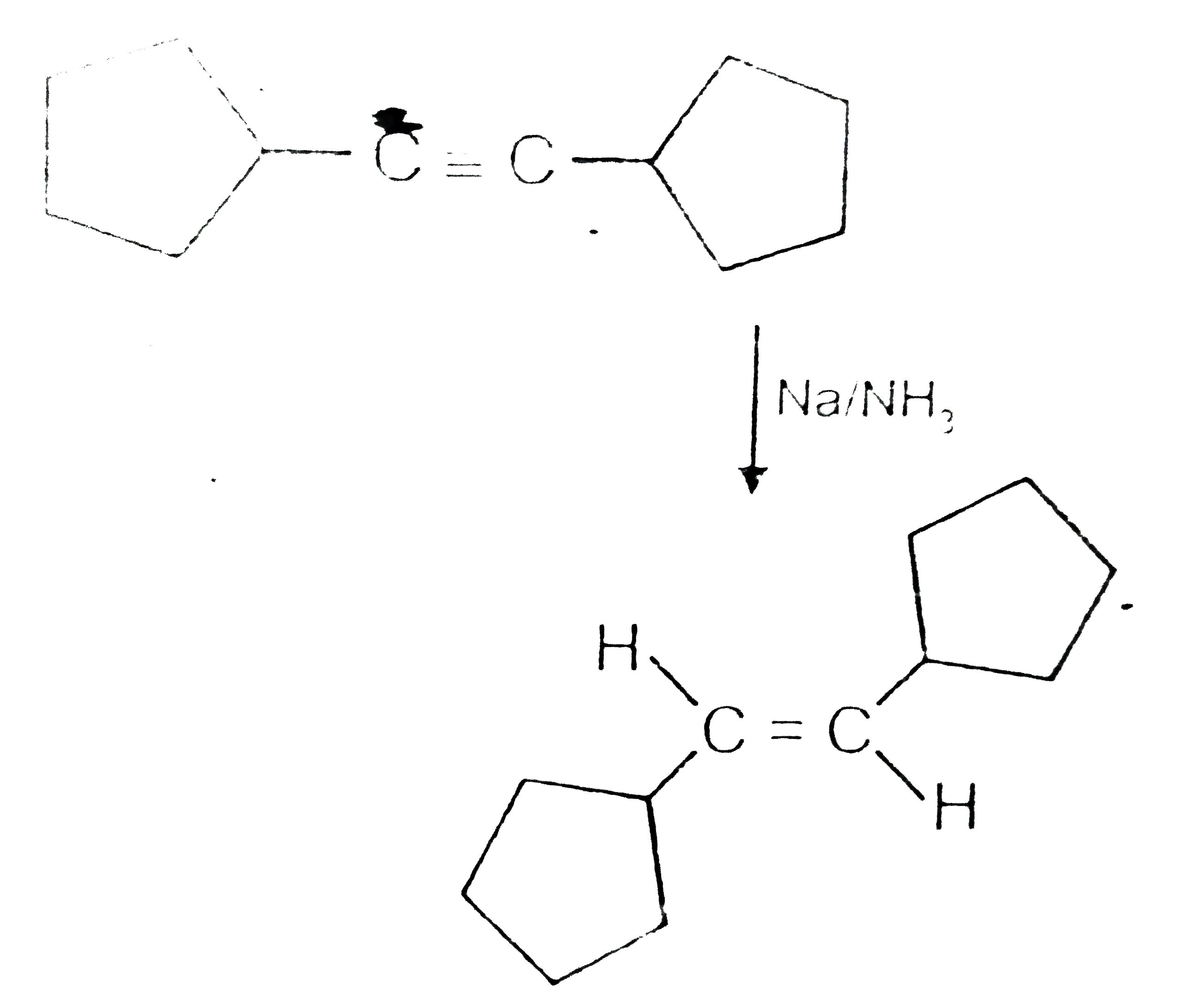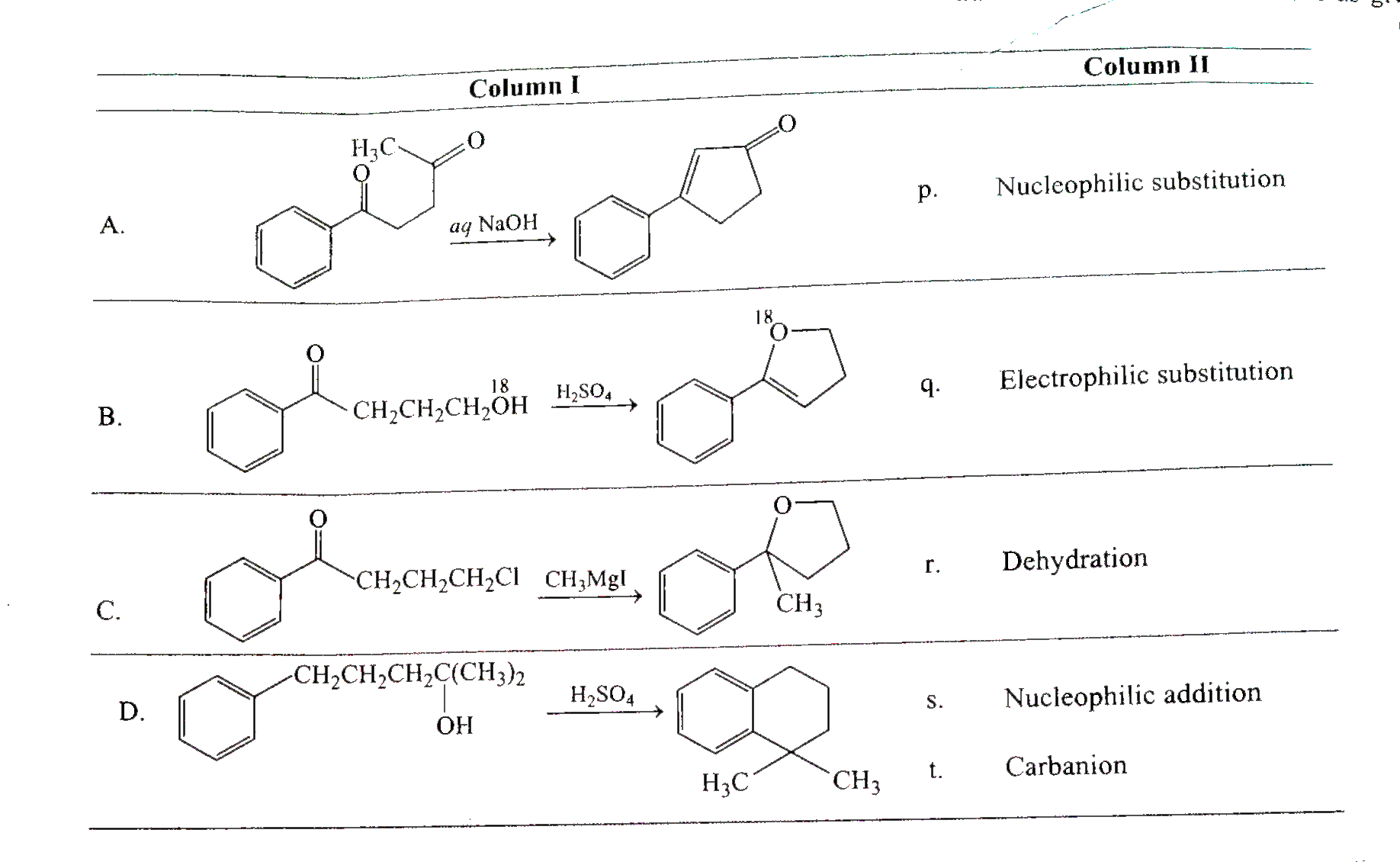What is the reaction intermediate in a nitration process ?
Step-by-Step Text Solution:
1. Understanding Nitration Process: Nitration is a chemical process that introduces a nitro group (-NO2) into an organic compound. This is typically done using a mixture of nitric acid (HNO3) and sulfuric acid (H2SO4).
2. Reagents Involved: The primary reagents in the nitration process are nitric acid and sulfuric acid. The sulfuric acid acts as a dehydrating agent and helps to generate the nitronium ion (NO2+), which is the active electrophile in the reaction.
3. Formation of the Electrophile: In the presence of sulfuric acid, nitric acid undergoes a reaction where the hydroxyl (OH) group is protonated, leading to the formation of water. The remaining species is the nitronium ion (NO2+), which is a positively charged ion and acts as the electrophile in the nitration process.
4. Reaction Intermediate: The nitronium ion (NO2+) is the key reaction intermediate in the nitration process. It is this ion that attacks the aromatic ring of the substrate, leading to the formation of the nitro-substituted product.
5. Conclusion: Therefore, the reaction intermediate in the nitration process is the nitronium ion (NO2+), which is generated from the reaction of nitric acid and sulfuric acid.
---
Topper's Solved these Questions
- BOOK - ICSECHAPTER - ORGANIC CHEMISTRY : SOME BASIC PRINCIPLES AND TECHNIQUES EXERCISE - SHORT ANSWER TYPE QUESTIONS110videos
ORGANIC CHEMISTRY : SOME BASIC PRINCIPLES AND TECHNIQUES
- BOOK - ICSECHAPTER - ORGANIC CHEMISTRY : SOME BASIC PRINCIPLES AND TECHNIQUES EXERCISE - ESSAY ( LONG ANSWER ) TYPE QUESTIONS42videos
ORGANIC CHEMISTRY : SOME BASIC PRINCIPLES AND TECHNIQUES
- BOOK - ICSECHAPTER - ORGANIC CHEMISTRY : SOME BASIC PRINCIPLES AND TECHNIQUES EXERCISE - REVIEW EXERCISES176videos
ORGANIC CHEMISTRY : SOME BASIC PRINCIPLES AND TECHNIQUES
- BOOK - ICSECHAPTER - HYDROGENEXERCISE - NCERT TEXT-BOOK EXERCISE (With Hints and Solutions)53videos
HYDROGEN
- BOOK - ICSECHAPTER - REDOX REACTIONS (OXIDATION AND REDUCTION)EXERCISE - NCERT TEXT-BOOK. EXERCISES ((With Hints and Solutions)69videos
REDOX REACTIONS (OXIDATION AND REDUCTION)
Similar Questions
Reaction intermediate of EicB reaction is :
View SolutionIn propagation step, the reaction intermediate of radical polymerisation is
View SolutionWhat type of reaction intermediates are obtained when a covalent bond undergoes homolytic fission?
View SolutionWhat is the reaction occuring at the anode in Down's process for the extraction of sodium ?
View SolutionConsider the following reaction
 The reactive intermediate invovled in this reaction is View Solution
The reactive intermediate invovled in this reaction is View SolutionIn which of the following reaction formation of reaction intermediate does not take place?
View SolutionMatch the reactions in Column I with appropriate types of steps/reactive intermediate involved in these reactions as given in Column II.
 View Solution
View SolutionIn the avove reaction the intermediate species are :
 View Solution
View SolutionThe intermediate in the reaction given below is
 View Solution
View SolutionName the different reaction intermediates. Give a brief account of carbocations.
View Solution

